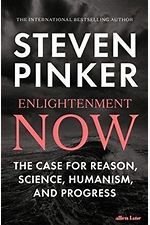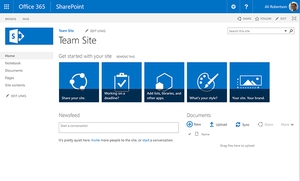Its almost the end of July and I have already managed my annual target of reading 12 books, helped along by the lockdown and the resultant lack of other things to do, plus reduced need for travelling every day.
I thought I would share my list so far along with some comments on each book:
 Compassionism by Kavitha Chahel
Compassionism by Kavitha Chahel
A book looking at “Helping Business Leaders Create engaged teams and happy people”. An easy book to read but I will admit I don’t feel I took much from it. It felt very superficial but this may just be me. Not one I would recommend sadly.
 The Culture Code by Daniel Coyle
The Culture Code by Daniel Coyle
“The secrets of highly successful groups”. I took more from this book than from Compassionism plus found it mentioned concepts and theories I had an interest such as “Kaizen” which made it reasonably interesting to read. I would however say there are better books available on organisational culture.
 Start with why by Simon Sinek
Start with why by Simon Sinek
“How great leaders inspire everyone to take action”. There were lots of things to take away from this book including mention of Money vs. Value, the tendency to consider what is easily measurable as being important and also the need for trust as part of organisational culture. It was very easy to draw parallels with schools and other educational organisations. This is book I would definitely recommend.
 Emotional Intelligence by Daniel Goleman
Emotional Intelligence by Daniel Goleman
This one was a book I was re-reading after some time. Quite a heavy book to read in places but overall an excellent book with some important concepts around the need for Emotional intelligence in the world we live in. Given the pace of change, and pressures to meet targets and other performance measures, I think a focus on our emotional understanding is only becoming more important.
 Blink by Malcolm Gladwell
Blink by Malcolm Gladwell
I generally like Gladwells books so expected to like this. I did. A book looking at how our intuition and unconscious decision making can often steer us in the correct direction and how we can often confuse “information with understanding”. I feel this book is a good balance alongside the likes of Factfulness which focus more on data and figures, on information, for decision making. A strongly recommended read.
 Leaders Eat Last by Simon Sinek
Leaders Eat Last by Simon Sinek
Another Sinek book for the year. This book is similar to Start with Why however in my view focusses more on the individual whereas start with the why felt more from a team or organisational level. I liked the concept of “Destructive Abundance” which appears to draw some parallels in Factfulness. Could having more “stuff” lead to undervaluing what we have and/or seeking protect it in such as way that we isolate ourselves from others? This is a book I would happily recommend.
 The Happiness Hypothesis by Jonathan Haidt
The Happiness Hypothesis by Jonathan Haidt
This book also mentions abundance but as a “paradox of abundance” rather than the “destructive abundance” used by Sinek. I found this book to be quite an interesting exploration of ancient wisdom and how it compares with modern science, including where they converge and diverge. The main thing I took from the book was the importance of balance and how things are seldom A or B, but in fact are about a balance of A and B.
 Reaching down the rabbit hole by Allan Ropper & B.D Burrell
Reaching down the rabbit hole by Allan Ropper & B.D Burrell
A series of stories about people who have suffered serious brain injuries or illness impacting on the human brain, all written from the point of view of the doctor seeking to solve the puzzle of their illness and to cure them where possible. This book wasn’t really what I expected in its content so although I read it fully I don’t feel I enjoyed it or took anything from it. It may be a good book but didn’t really align with my reading interests so is not one I would recommend unless the subject content is something which interests you.
 I’m worth more by Rob Moore
I’m worth more by Rob Moore
An easy to read book, but superficial as a result, a bit like Compasionism. When I read books like this I feel they are a little like “self help” guides in that they put everything in very simple terms where things in this world are seldom simple. I really like books that make me stop and challenge my views and assumptions which this book never did. I would steer away from this one.
 Life 3.0 by Max Tegmark
Life 3.0 by Max Tegmark
I really enjoyed the subject matter of this book, looking at Artificial Intelligence and how things might evolve beyond the human race, but with only the occasional nod to the Terminator films and the human race being exterminated by vicious automated systems. This book opened my eyes to looking at the potential for AI and for the evolution of life, beyond the horror stories. Now I have used the phrase “healthy paranoia” on a number of occasions in relation to my views on cyber security however this book introduced me to a new phrase in “mindful optimism” which I believe is the ideal phrase when looking a the potentially positive implications of technology and also of educational technology.
 Factfulness by Hans Rosling
Factfulness by Hans Rosling
What is a lot of your thinking, which is largely intuitive, about the world we live in is wrong? This book was very interesting in using data to prove that a lot of our thinking regarding the world isn’t supported by hard data and that if we look at the hard data we might be more inclined to be more positive, albeit there is still lots of room for improvement. I very much enjoyed this book as it did challenge my thinking. It was also a good book to pair with Malcolm Gladwell’s Blink which at the issue the other way, suggesting instinct is more useful than we give it credit. This is a book I would strongly recommend.
 Enlightenment No by Steven Pinker
Enlightenment No by Steven Pinker
This book is similar in topic and coverage to Factfulness, so it was good reading Factfulness and then progressing on this. I found lots to take away from the book, although found it a little heavier reading, especially in some of the later chapters, when compared with Factfulness. I liked the opening discussion of entropy in relation to the world, and how energy has to be expended to create order out of natural chaos. I also liked the discussion of bias. “When one’s nose is inches away from the news optimism can seen naïve”, hinted to the availability heuristic and how reporting of disasters, terrorism, etc via the news can colour our view as to the world we live in. This is definitely a worthwhile book to read, however if I was to choose I would pick Factfulness rather than this, just for being marginally more accessible and easy to read.
Recommendations
So, if I had to recommend three books from the above, they would be:
- Blink
- Life 3.0
- Factfulness
This provides some discussion of the distant future and AI, via Life 3.0, plus two differing views on the current world and whether to take a numbers based, or intuition based approach.





 The recent issue of Huawei 5G equipment in the UKs 5G infrastructure highlights the challenges of the internet and technology, which often cross international borders, but where the services and hardware is produced by companies which exist clearly within the borders of countries and therefore potentially within the influence of their governments. There is a clear tension here between the services provided to the internet and the companies providing them.
The recent issue of Huawei 5G equipment in the UKs 5G infrastructure highlights the challenges of the internet and technology, which often cross international borders, but where the services and hardware is produced by companies which exist clearly within the borders of countries and therefore potentially within the influence of their governments. There is a clear tension here between the services provided to the internet and the companies providing them. I have been pushing ahead with Office 365 in school for a few years focussing initially on email and OneDrive before moving on to Teams and OneNote. I didn’t give SharePoint online much of a look, until I started looking at alternatives to the often-pricey Learning Platforms or Virtual Learning Environments used by many schools.
I have been pushing ahead with Office 365 in school for a few years focussing initially on email and OneDrive before moving on to Teams and OneNote. I didn’t give SharePoint online much of a look, until I started looking at alternatives to the often-pricey Learning Platforms or Virtual Learning Environments used by many schools.